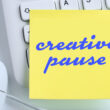I got an email yesterday from a reader of one of my books, and it’s an email I’ve gotten dozens of times before, and it always puts me in an uneasy position. Uneasy enough, and yet common enough, that I wanted to share it with you guys.
He had read something in my book “The Photoshop Book for Digital Photographers” where I said to do something a particular way, but then he found someone on a Web site somewhere who said to do it differently (in fact, they said to do it the exact opposite of what I said in my book). So, basically, he was emailing me to ask me to defend what I written in my book. Ugh.
As I’ve done dozens of times in the past, I set out to write a lengthy explanation of why what I had stated in the book was correct, and give even more detail and background than was already provided in the book, but the more I thought about it, the more I realized (from previous exchanges exactly like this over the years) that this was just going to start a long back and forth, and that in the end, because he had doubts (based on what he read on some Web site) he was going to believe what he wanted to believe anyway.
So instead, without being a smart-alec in any way, I politely let him know that what I wrote in the book is actually how I feel on the topic, so he already knows that’s what I believe, but I also told him (I’m paraphrasing here):
On the Web you’ll find conflicting information on every topic; whether it’s medical advice or how to hang a picture frame; from how to play the Blues on guitar, to how to cook spaghetti bolognese. It really comes down to you making a decision about which advice to follow. You have to choose which person’s explanation, theory, or technique sounds more “right” or makes more sense to you, and try that and see what you think. :)
In the end, I’ve realized how important it is to find sources that I can trust on a wide variety of topics. I usually look for experts on the topic, and once I find someone who makes sense to me, and then (this is important), I take their advice and try it for myself and it works for me, then that becomes my go-to person for that topic.
That doesn’t mean I ignore the rest of the world, but if I read something conflicting, I take it with a grain of salt. For example, if Joe McNally tells me something about off-camera flash—I know he’s speaking from experience, and I take his advice and run with it. If I read in a forum, or even in a book something that flies in the face of what Joe says, that doesn’t mean Joe is necessarily wrong; it just means somebody else does it differently, and that may work for them.
In Photoshop, it’s the same thing. There are so many different ways to do things, and so many of us teaching how to use Photoshop, that you’re going hear and see different techniques that we found work for us, and we pass those on to our students. For example, there are a dozen (probably more) books written on color correction in Photoshop. Which one is right? They all work (you don’t ever see a color correction book where the correction looks worse than the original), but again, you have to choose which experts techniques makes the most sense to you (for me, it’s Dan Margulis; to me he’s the bottom line on color, but you’ll find others who disagree). That’s OK, what I’ve learned from Dan works for me.
But finding an expert who makes sense to you, whether its about Photoshop or how to drive a race car, is only one part of this. It’s perhaps even more important to try this person’s techniques yourself and see if it actually translates to what you were looking for. Does it actually work the way you were hoping?
The person who wrote me that email could have tested both theories (the one outlined in my book, and the one he read somewhere on the Web) in less time than it took to find my email address and compose that email. He would have known right then and there if what I said was right, or what he read on the Web was right. That’s what’s so great about Photoshop. Testing is nearly instant. It’s not like medicine (where you have to wait to see if you got it right, and a lot more is riding on the line).
I guess the point of all this is that at some point, you’re going to have to trust somebody, but beyond that once you do find somebody whose opinions you trust; if at all possible, try them out yourself. See if their techniques/advice/theory works for you, and if you’re getting the results you hoped you would. Oh yeah, that, and don’t write an author asking if what they wrote in the book is what they really meant. I doubt they’ll say, “Oh that….oh, I was just making up stuff for the book. I really think something completely different.” ;-)



